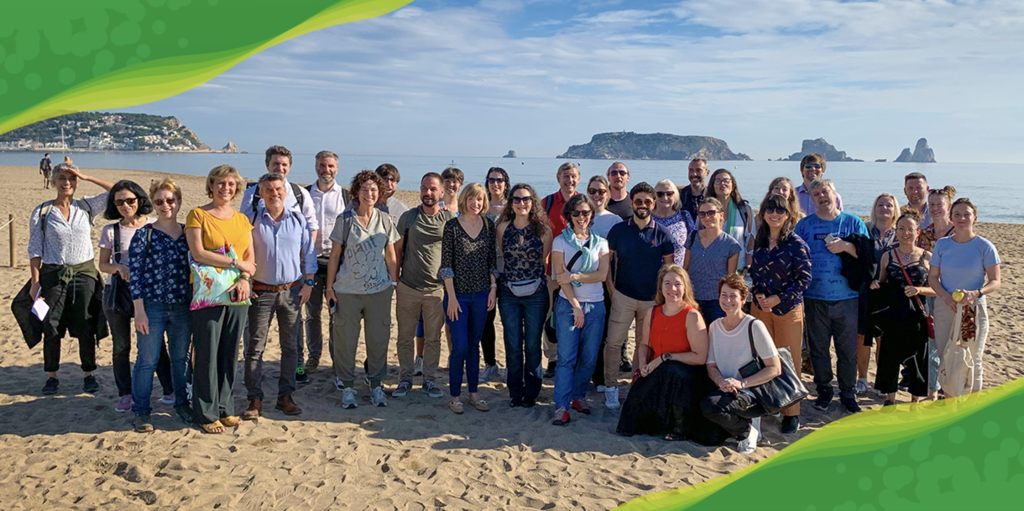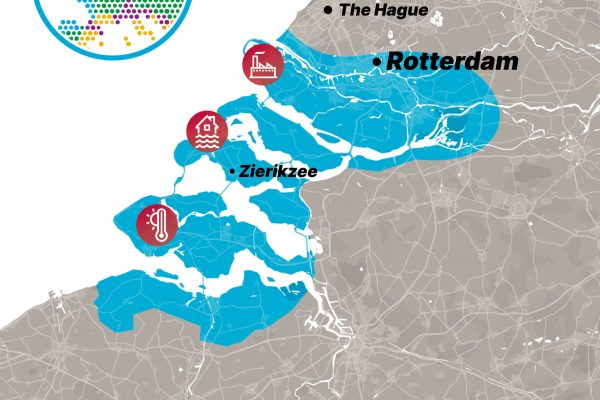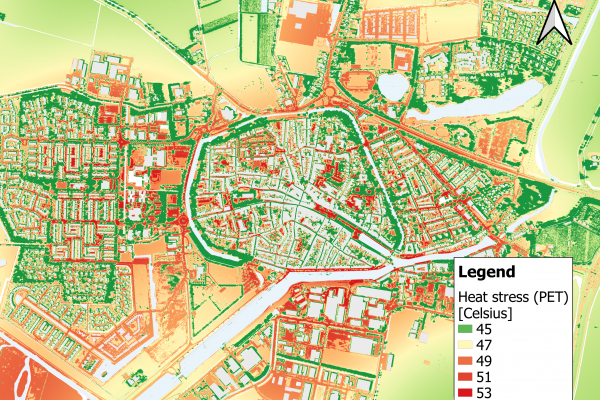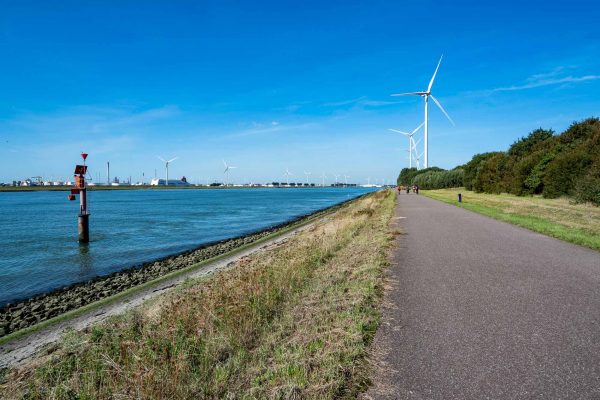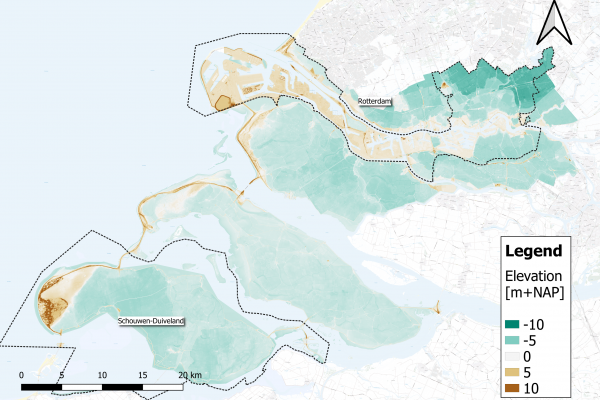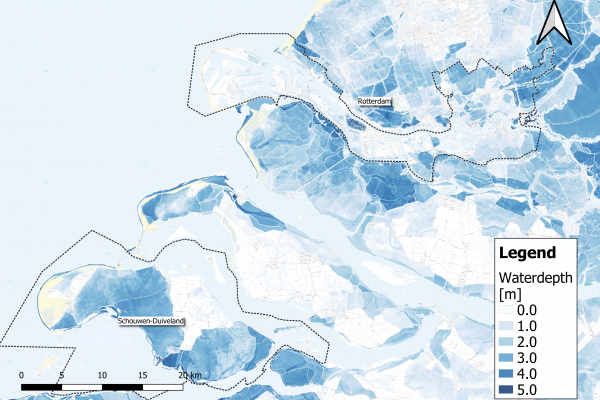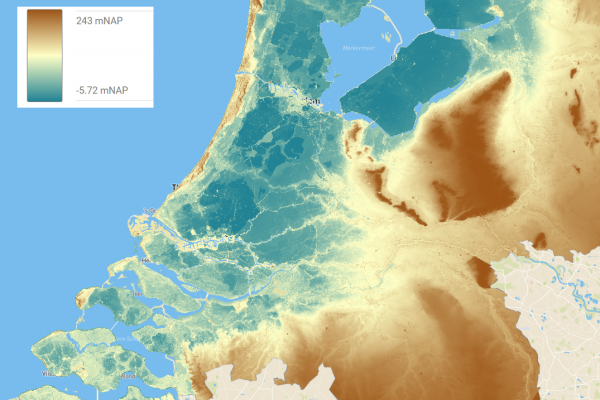Helping communities to find their path to becoming resilient to the local impacts of climate change is the core goal of the EU-funded IMPETUS project. Understanding how the numerous and varied elements of this complex project will work together in practice was a significant step taken in the first face-to-face ‘all hands’ partners’ meeting. Participants in the General Assembly on 13-14 October 2022 reviewed year-one achievements and plans for upcoming activities, ensuring work is on track to deliver on the project goals.
The ability to prepare for, adjust to and recover or possibly even benefit from changes – described as ‘resilience’ – is vital for the long-term socio-economic, ecological and human (physical and mental) health of communities. IMPETUS is combining scientific data and digital tools in a way that communities can interact with while they work together to explore their best options and make decisions that help them adjust to climate change. This approach to boosting knowledge about climate change resilience should ultimately be usable by any community that wants to modify it to suit their situation. Within IMPETUS, this ‘Resilience Knowledge Booster’ (RKB) model is being developed through diverse technical and human-centric activities, and will be tested and validated by communities in the project’s seven demonstration sites around Europe.
A shared vision and a beautiful view
An interactive workshop session during the General Assembly asked IMPETUS participants to reflect on their own work within the project’s bigger context. Placing sticky notes on a large-scale diagram and discussing the relationships between project tasks and the workflows depicted, helped participants to better understand how all their contributions will combine. This shared vision will enhance internal and external communications and strengthen the project team’s ability to deliver its big-picture RKB framework, as well as many of its more specific or local ambitions.
One such local ambition is to restore sand dunes while using and developing best practices, as a way to protect coastal areas in Catalonia against stormy seas. A field trip to see locations where such work has and will take place provided a brief but welcome dose of sun, sea and sand and some beautiful views for around 50 IMPETUS participants who attended the General Assembly in Barcelona in person.
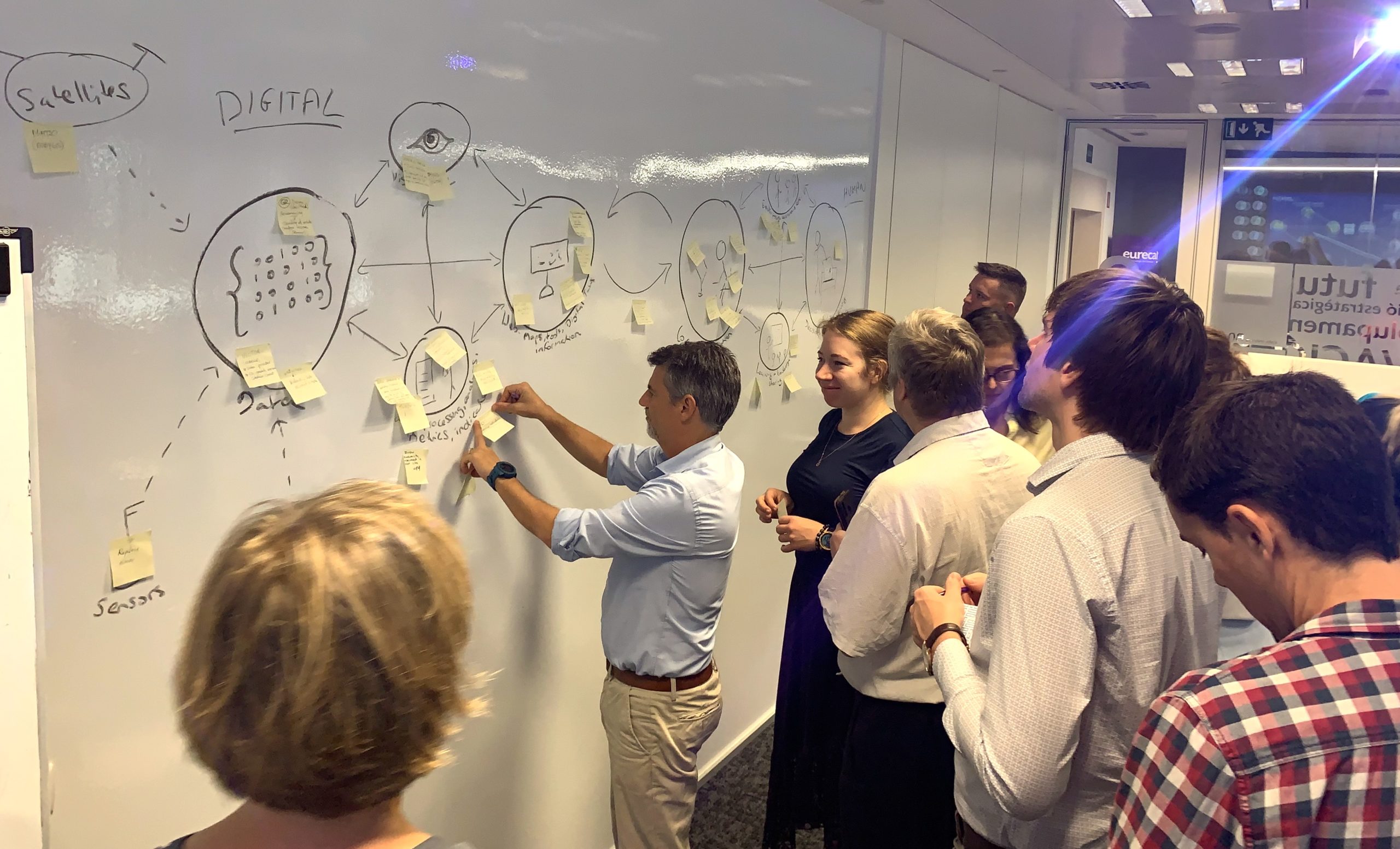
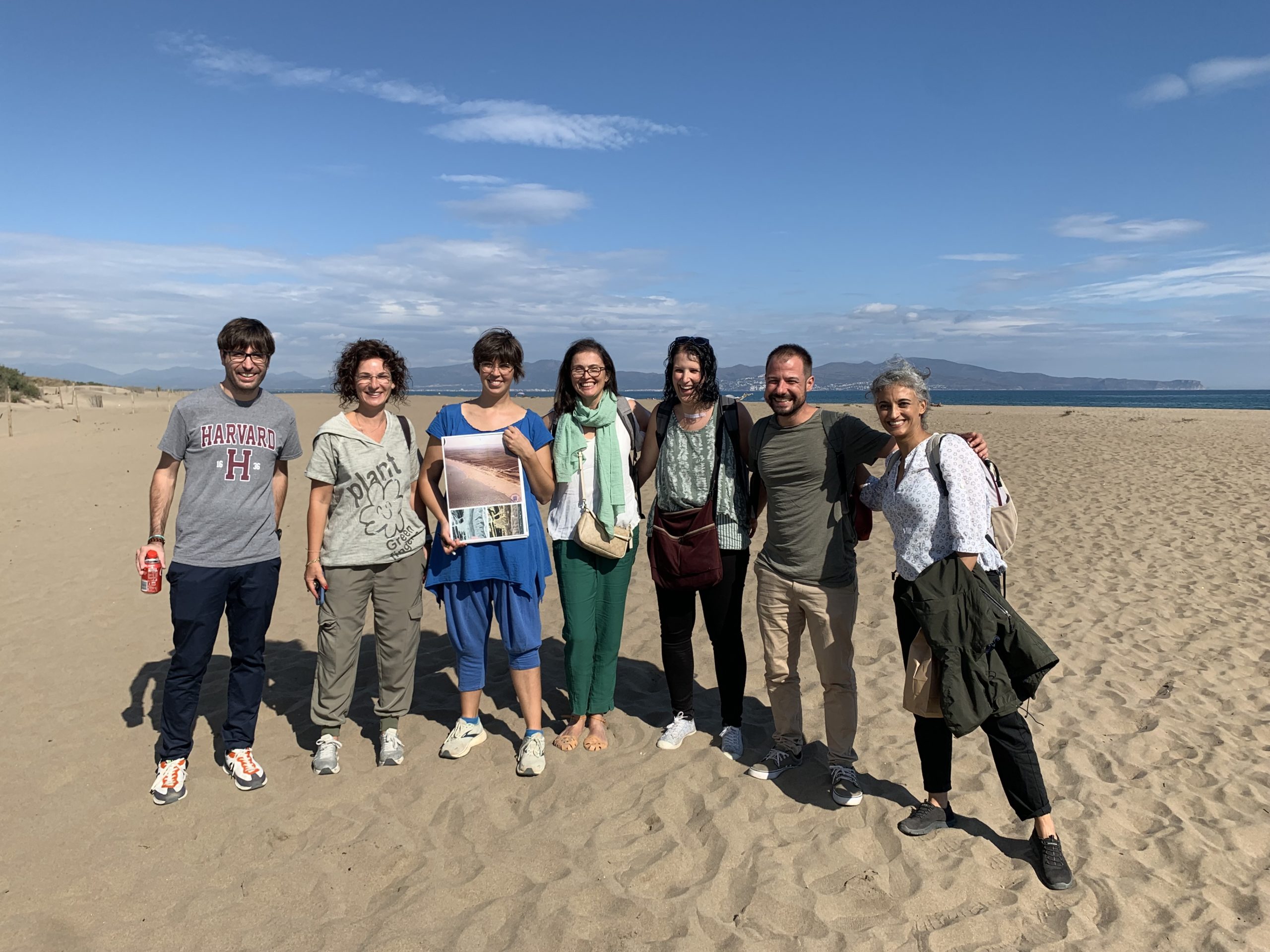
Achievements in year one
Back in the meeting venue, the achievements made in the project’s first year, regarding development of the RKBs and the more local activities of the demo site teams, were presented.
The key achievements of the IMPETUS technical teams during year one of the project include:
- Completion of the initial technical design and data architecture for the RKB approach;
- Generation of climate data for the seven IMPETUS demonstration sites, from climate models and datasets using hydrological data (e.g. soil moisture, water levels) and land use information from Earth observation satellites and other open repositories;
- Development of data processing and modelling steps that will allow the generation of high-resolution datasets and the projection of future scenarios and economic impacts;
- Definition of climate change indicators (such as heat vulnerability) and related metrics (such as legislation adjustments), plus their validation and improvement based on community stakeholders’ feedback;
- Development of a web-based ‘hot-spot’ tool that uses these indicators and metrics in identifying high-risk or highly vulnerable regions and will allow communities to prioritise them.
The teams focusing on ‘human dimension’ IMPETUS activities:
- Supported demo site teams in initiating contacts with and gathering information from their regional stakeholders through regional surveys.
- Around 400 representatives of businesses, environmental groups, industry, media, civil society groups, research organisations and others shared their knowledge, concerns and ideas about climate change and its impacts.
- This paves the way for planning more detailed engagement and communication activities for the next year of the project.
- Around 600 stakeholders were identified for such further collaboration.
The specific climate change challenges and solutions that the demo site teams tackle are highly diverse. Their key achievements during year one of IMPETUS include:
- Berlin metropolitan area, ‘Continental’ bioclimatic region –
– Identified synergies with the Berlin Masterplan for Water;
– Completed a first open dataset analysis of surface- and ground-water levels to visualise the effects of recent dry years. - Catalonia, ‘Coastal’ bioclimatic region –
– Established the experimental basis for the construction of a multi-functional wetland to test water treatment in flood risk areas of the Ebro Delta;
– Designed a bioreactor to treat water from seaside campsites for irrigation and other purposes. - Athens and wider Attica, ‘Mediterranean’ bioclimatic region –
– Tendered for a pumping station and construction of a sewer mining unit that will reclaim water for urban irrigation;
– Investigated existing digital infrastructure that can provide the basis for a Digital Twin of the region. - Zeeland and Rijnmond, ‘Atlantic’ bioclimatic region –
– Defined key technical aspects of decision support tools focusing on flooding, heat stress, and industrial decarbonisation;
– Held workshops and meetings with relevant municipalities and other stakeholders to initiate engagement and obtain first feedback on the tools. - Troms and Finnmark, ‘Arctic’ bioclimatic region –
– Held workshops and meetings with various authorities and stakeholders about climate-proofing of Tromsø city centre;
– Acquired data, began design, and achieved funding for a PhD position to create an early warning system for rockfalls, landslides and avalanches. - Zemgale, ‘Boreal’ bioclimatic region –
– Identified locations for new equipment and found national data sources for the upgrading of a flooding early warning system from city to regional scale;
– Defined an activity plan for creation and installation of a regional digital twin. - Valle dei Laghi, ‘Mountains’ bioclimatic region –
– Collected and analysed data and met stakeholders regarding activities focusing on water usage, wine production, cultural heritage and insurance impacts of climate change;
– Drafted a collaboration proposal for a relevant local insurance company.
During the first project year, IMPETUS also liaised with sister projects and several partners presented project activities and results in events related to climate change and water, wine production, space technology and Earth observation, and global sustainable development, among others. Information about some of these can be found in the IMPETUS website events and stories pages.
Future activities
In year two of IMPETUS, partners will step up demo site activities and efforts to engage with their community stakeholders, co-develop materials for the sharing of knowledge, and develop further tools that will form the ‘digital dimension’ of the RKBs.
Further information
The IMPETUS General Assembly in Barcelona on 13-14 October 2022 was hosted by the project’s lead partner Eurecat.
